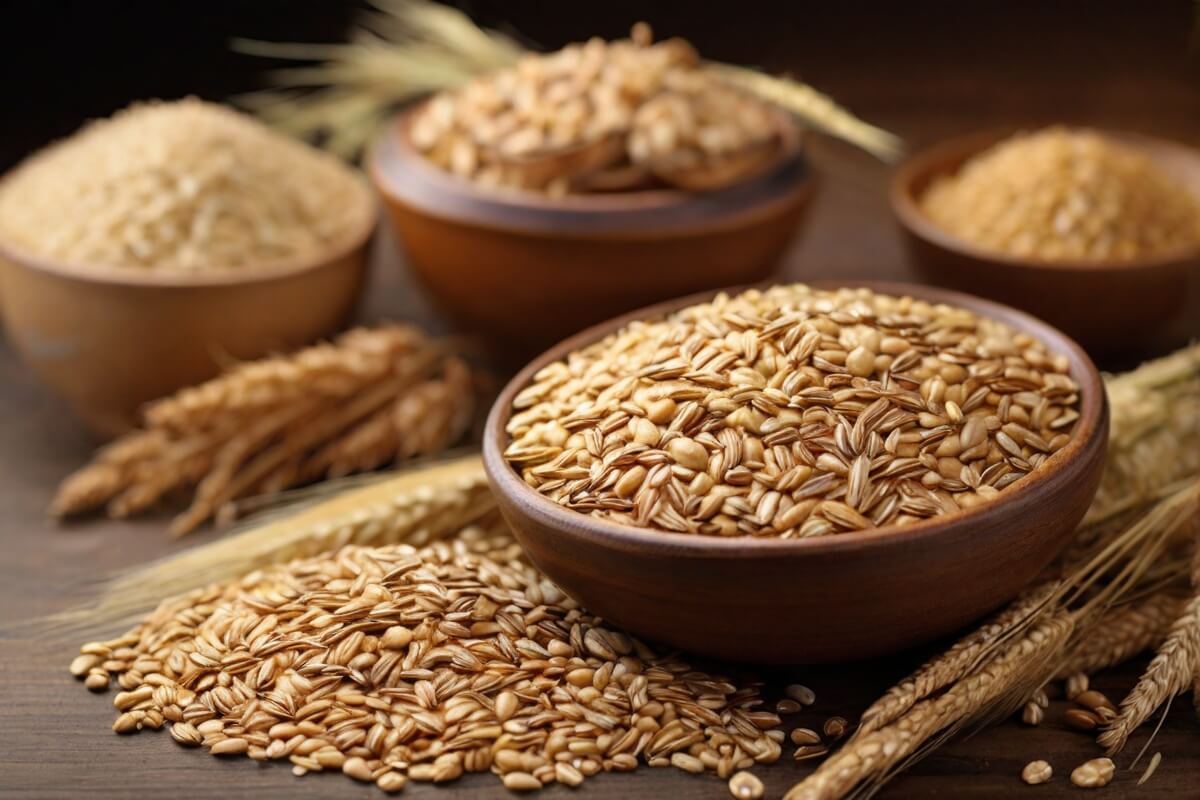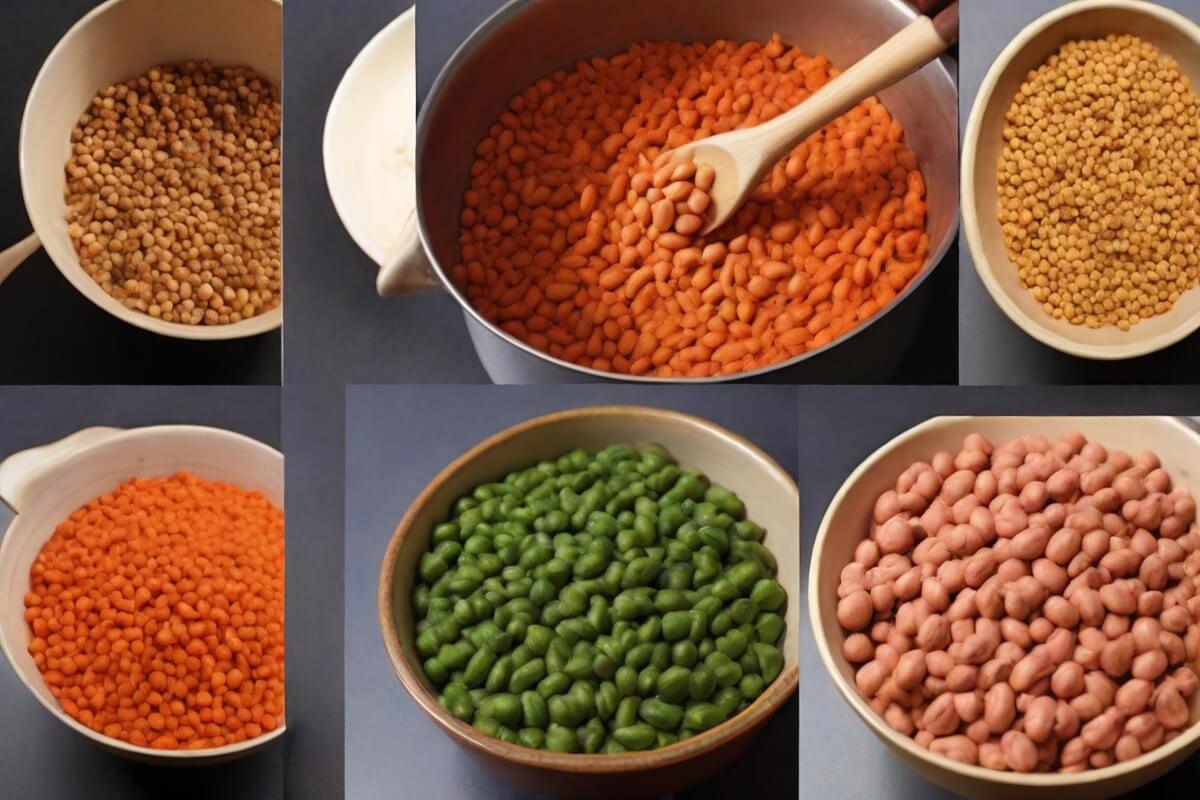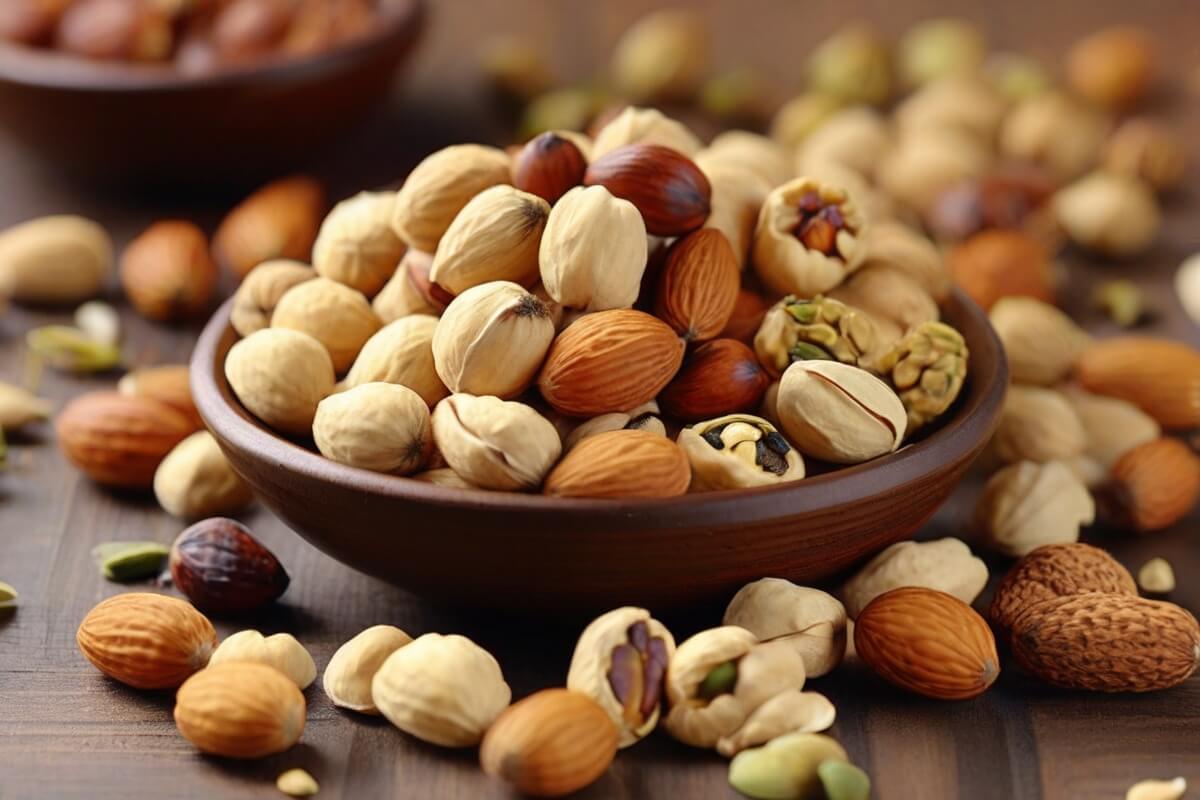The Mediterranean diet is one of the most popular and healthy diets in the world. It is based on the traditional eating patterns of the people living in the Mediterranean region, such as Greece, Italy, Spain, and Morocco. The Mediterranean diet is rich in fruits, vegetables, whole grains, legumes, nuts, seeds, olive oil, fish, and moderate amounts of dairy, eggs, poultry, and wine. It is low in red meat, processed foods, added sugars, and saturated fats.
The Mediterranean diet has been linked to many health benefits, such as lower risk of heart disease, diabetes, obesity, cancer, Alzheimer’s, and Parkinson’s. It can also improve your mood, memory, and longevity. In this article, we will show you how to follow the Mediterranean diet in 15 easy steps. You will learn what to eat, what to avoid, and how to make delicious and nutritious meals that will make you feel good and look great.
Step 1: Eat more fruits and vegetables

Fruits and vegetables are the cornerstone of the Mediterranean diet. They provide vitamins, minerals, antioxidants, and fiber that can protect you from chronic diseases and inflammation. You should aim to eat at least five servings of fruits and vegetables per day, preferably fresh, local, and organic. You can enjoy them raw, cooked, roasted, grilled, or in salads, soups, stews, or smoothies. Some of the best fruits and vegetables to include in your Mediterranean diet are:
- Tomatoes
- Cucumbers
- Eggplants
- Zucchini
- Bell peppers
- Spinach
- Kale
- Broccoli
- Cauliflower
- Carrots
- Onions
- Garlic
- Lemons
- Oranges
- Apples
- Pears
- Berries
- Grapes
- Figs
- Dates
- Olives
Step 2: Switch to whole grains

Whole grains are another staple of the Mediterranean diet. They are rich in complex carbohydrates, fiber, protein, and phytochemicals that can lower your blood sugar, cholesterol, and blood pressure. They can also keep you full and satisfied for longer, preventing overeating and weight gain. You should choose whole grains over refined grains, such as white bread, white rice, and white pasta, which are stripped of their nutrients and fiber. Some of the best whole grains to include in your Mediterranean diet are:
- Oats
- Barley
- Quinoa
- Bulgur
- Farro
- Couscous
- Brown rice
- Whole wheat bread
- Whole wheat pasta
You can enjoy whole grains for breakfast, lunch, or dinner, as porridge, cereal, salad, pilaf, or as a side dish.
Step 3: Add more legumes

Legumes are another important component of the Mediterranean diet. They are high in protein, fiber, iron, folate, and other minerals that can support your muscle, bone, and blood health. They can also lower your cholesterol, blood pressure, and blood sugar, and reduce your risk of heart disease, diabetes, and colon cancer. You should aim to eat at least three servings of legumes per week, such as beans, lentils, chickpeas, peas, or soybeans. You can enjoy them cooked, sprouted, or in salads, soups, stews, dips, or burgers. Some of the best legumes to include in your Mediterranean diet are:
- Black beans
- Kidney beans
- Pinto beans
- White beans
- Navy beans
- Lima beans
- Black-eyed peas
- Green peas
- Split peas
- Red lentils
- Brown lentils
- Green lentils
- Chickpeas
- Hummus
- Edamame
- Tofu
- Tempeh
Step 4: Go nuts and seeds

Nuts and seeds are another essential part of the Mediterranean diet. They are packed with healthy fats, protein, fiber, and antioxidants that can boost your brain, heart, and skin health. They can also lower your cholesterol, blood pressure, and inflammation, and prevent diabetes and cancer. You should eat a handful of nuts and seeds every day, preferably raw, unsalted, and unroasted. You can enjoy them as a snack, or add them to your salads, cereals, yogurt, or baked goods. Some of the best nuts and seeds to include in your Mediterranean diet are:
- Almonds
- Walnuts
- Pistachios
- Cashews
- Hazelnuts
- Pecans
- Macadamia nuts
- Brazil nuts
- Pine nuts
- Sunflower seeds
- Pumpkin seeds
- Sesame seeds
- Chia seeds
- Flax seeds
- Hemp seeds
Step 5: Use olive oil
Olive oil is the main source of fat in the Mediterranean diet. It is rich in monounsaturated fatty acids, or MUFAs, which are considered the healthiest type of fat for your heart. Olive oil can lower your LDL, or bad cholesterol, and raise your HDL, or good cholesterol, and prevent blood clots and strokes.
It can also reduce inflammation and oxidative stress, and improve your blood sugar and insulin sensitivity. You should use olive oil as your primary cooking oil, and drizzle it over your salads, vegetables, bread, or pasta. You should choose extra virgin olive oil, which is the least processed and most flavorful, and store it in a dark and cool place to preserve its quality. You should aim to consume about four tablespoons of olive oil per day.
Step 6: Eat more fish and seafood
Fish and seafood are another key element of the Mediterranean diet. They are high in protein, omega-3 fatty acids, iodine, selenium, and vitamin D, which are essential for your brain, heart, thyroid, and immune health. They can also lower your triglycerides, blood pressure, and inflammation, and prevent depression, dementia, and Alzheimer’s. You should eat at least two servings of fish and seafood per week, preferably fatty fish, such as salmon, tuna, mackerel, sardines, herring, or anchovies. You can also enjoy shellfish, such as shrimp, crab, lobster, oysters, mussels, or clams. You can enjoy fish and seafood grilled, baked, broiled, steamed, or in soups, stews, or salads.
Step 7: Limit red meat and processed meat
Red meat and processed meat are the least consumed foods in the Mediterranean diet. They are high in saturated fat, cholesterol, sodium, and additives, which can increase your risk of heart disease, diabetes, obesity, and cancer. You should limit your intake of red meat and processed meat to no more than once or twice per week, and choose lean cuts, such as sirloin, tenderloin, or round. You should also avoid bacon, ham, salami, sausages, hot dogs, and other cured or smoked meats. You can replace red meat and processed meat with poultry, such as chicken or turkey, which are lower in fat and calories, and higher in protein and iron. You can enjoy poultry roasted, grilled, or in soups, stews, or sandwiches.
Step 8: Enjoy dairy and eggs in moderation
Dairy and eggs are not a major part of the Mediterranean diet, but they are still consumed in moderate amounts. They are high in protein, calcium, vitamin D, and other nutrients that can support your bone, muscle, and eye health. They can also lower your blood pressure and improve your cholesterol levels. You should choose low-fat or non-fat dairy products, such as milk, yogurt, cheese, or cottage cheese, and limit your intake to no more than two or three servings per day. You should also choose organic or free-range eggs, and limit your intake to no more than three or four per week. You can enjoy dairy and eggs for breakfast, as a snack, or as a part of your meals.
Step 9: Drink wine in moderation
Wine is another characteristic feature of the Mediterranean diet. It is high in antioxidants, such as resveratrol, which can protect your blood vessels, lower your cholesterol, and prevent blood clots and strokes. It can also reduce inflammation and oxidative stress, and improve your mood and memory. You should drink wine in moderation, which means no more than one glass per day for women, and no more than two glasses per day for men. You should choose red wine over white wine, as it has more antioxidants and polyphenols. You should also drink wine with meals, and not on an empty stomach, to avoid alcohol abuse and intoxication.
Step 10: Drink water and herbal teas
Water and herbal teas are the main beverages in the Mediterranean diet. They are essential for your hydration, digestion, detoxification, and metabolism. They can also help you control your appetite and weight, and prevent dehydration and kidney stones. You should drink at least eight glasses of water per day, and more if you exercise or live in a hot climate. You should also drink herbal teas, such as
- Chamomile
- Mint
- Lemon balm
- Lavender
- Rosemary
- Thyme
- Sage
- Ginger
- Turmeric
You can enjoy water and herbal teas throughout the day, and avoid or limit sugary drinks, such as soda, juice, or sports drinks, which can add empty calories and harm your teeth and health.
Step 11: Use herbs and spices
Herbs and spices are another essential part of the Mediterranean diet. They add flavor, color, and aroma to your dishes, and reduce the need for salt, which can raise your blood pressure and damage your kidneys. They also have various health benefits, such as anti-inflammatory, antibacterial, antiviral, antifungal, and anticancer properties. They can also improve your digestion, immunity, and mood. You should use herbs and spices liberally in your cooking, and experiment with different combinations and cuisines. Some of the best herbs and spices to include in your Mediterranean diet are:
- Basil
- Oregano
- Parsley
- Cilantro
- Dill
- Rosemary
- Thyme
- Sage
- Mint
- Bay leaves
- Marjoram
- Fennel
- Cumin
- Coriander
- Turmeric
- Paprika
- Saffron
- Cinnamon
- Nutmeg
- Clove
- Cardamom
Step 12: Eat seasonally and locally
Eating seasonally and locally is another important aspect of the Mediterranean diet. It means choosing foods that are grown and harvested in your area, and that are available at the current time of the year. Eating seasonally and locally has many advantages, such as:
- It ensures that you eat fresh, ripe, and nutritious foods, that have not been treated with chemicals, preservatives, or additives.
- It supports your local farmers, producers, and markets, and reduces the environmental impact of transportation, packaging, and storage.
- It saves you money, as seasonal and local foods are usually cheaper and more abundant than imported or out-of-season foods.
- It adds variety and diversity to your diet, as you can enjoy different foods throughout the year, and discover new flavors and recipes.
You can find seasonal and local foods at your nearest farmers’ market, grocery store, or online delivery service. You can also grow your own fruits, vegetables, herbs, and spices in your garden, balcony, or windowsill.
Step 13: Plan your meals and snacks
Planning your meals and snacks is another key step to follow the Mediterranean diet. It can help you eat more balanced, varied, and healthy foods, and avoid skipping meals, overeating, or bingeing on junk food. It can also save you time, money, and stress, as you can shop, cook, and store your food more efficiently and conveniently. You should plan your meals and snacks according to your preferences, needs, and goals, and follow some general guidelines, such as:
- Eat three main meals per day: breakfast, lunch, and dinner, and avoid eating late at night.
- Eat one or two healthy snacks per day, such as fruits, nuts, yogurt, or hummus, and avoid sugary, salty, or fatty snacks, such as chips, cookies, or candy.
- Eat a variety of foods from each food group, and include at least one serving of fruits, vegetables, whole grains, legumes, nuts, seeds, olive oil, and fish or seafood in each meal.
- Eat moderate portions, and use smaller plates, bowls, and cups to control your serving sizes.
- Eat slowly, and chew your food well, to aid your digestion and satiety.
- Drink water and herbal teas with your meals, and limit your intake of wine, coffee, and tea.
Step 14: Cook more at home
Cooking more at home is another essential step to follow the Mediterranean diet. It can help you eat more wholesome, natural, and delicious foods, and avoid processed, packaged, and fast foods, which are high in calories, fat, sugar, salt, and additives. It can also help you control your ingredients, portions, and costs, and customize your dishes to your taste and needs. Cooking more at home can also be fun, relaxing, and rewarding, as you can unleash your creativity, learn new skills, and share your food with your family and friends. You should cook more at home by following some simple tips, such as:
- Stock your pantry, fridge, and freezer with healthy and versatile ingredients, such as olive oil, whole grains, legumes, nuts, seeds, herbs, spices, fruits, vegetables, fish, poultry, eggs, and cheese.
- Plan your weekly menu, and make a shopping list of the ingredients that you need.
- Batch cook your meals, and store them in the fridge or freezer for later use.
- Use simple and easy recipes, and follow the Mediterranean cooking methods, such as grilling, baking, broiling, steaming, or sautéing.
- Use online resources, such as blogs, videos, podcasts, or apps, to find inspiration, tips, and ideas for your Mediterranean dishes.
Step 15: Enjoy your food and life
The last and most important step to follow the Mediterranean diet is to enjoy your food and life. The Mediterranean diet is not only about what you eat, but also how you eat and live. The Mediterranean people have a positive and relaxed attitude towards food and life, and they value quality over quantity, pleasure over restriction, and social over individual. They enjoy their food with gratitude, appreciation, and moderation, and they share their meals with their family and friends, creating a sense of community and belonging. They also enjoy their life with passion, curiosity, and joy, and they engage in physical, mental, and spiritual activities, such as walking, dancing, reading, learning, praying, or meditating. You should enjoy your food and life by following some simple suggestions, such as:
- Eat mindfully, and savor every bite of your food, without distractions, such as TV, phone, or computer.
- Eat socially, and invite your family and friends to join you for your meals, or host a potluck, picnic, or barbecue.
- Eat seasonally, and celebrate the holidays and festivals with special foods and traditions, such as Easter, Christmas, or Ramadan.
- Eat culturally, and explore the cuisines and cultures of the Mediterranean countries, such as Greece, Italy, Spain, or Morocco.
- Eat joyfully, and treat yourself occasionally to your favorite foods, such as pizza, ice cream, or chocolate, without guilt or regret.
- Live actively, and move your body every day, in a way that you enjoy, such as walking, biking, swimming, gardening, or playing sports.
- Live creatively, and express yourself through art, music, literature, or any other form of self-expression, such as painting, singing, writing, or knitting.
- Live intellectually, and challenge your mind every day, by learning something new, such as a language, a skill, or a hobby, such as Spanish, chess, or photography.
- Live spiritually, and connect with your inner self, your higher power, or your purpose, by practicing meditation, prayer, yoga, or any other form of spirituality, such as Buddhism, Christianity, or Islam.
- Live happily, and appreciate the small and big things in your life, such as your health, your family, your friends, your work, or your dreams, and be grateful, optimistic, and hopeful for the future.
Conclusion
The Mediterranean diet is one of the best ways to eat and live in a healthy, tasty and balanced way. By following the 15 steps we’ve outlined in this article, you’ll be able to enjoy the benefits of this diet for your health, well-being and quality of life. Remember that the Mediterranean diet is not a restrictive or strict diet, but rather a lifestyle that values diversity, moderation, pleasure and socializing. Try it and see the results. 😊
We hope this article has been useful and informative for you. Leave your comment below and follow us on facebook and pinterest for more tips
